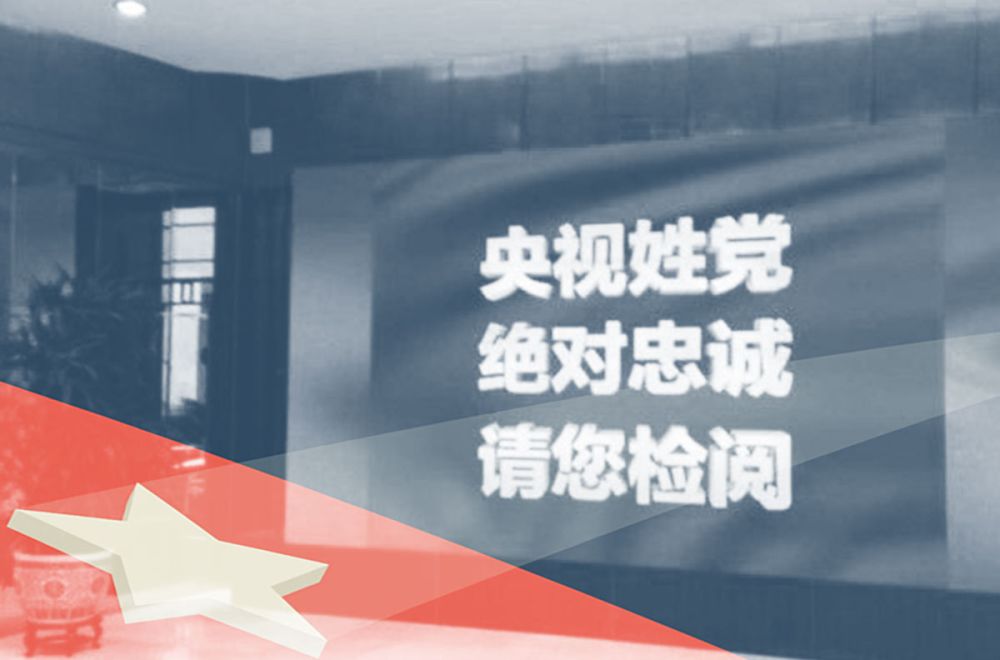
Earlier this month, CMP looked at criticism in the Chinese media of the decision by the UK broadcast regulator Ofcom to withdraw the UK broadcast license for China Global Television Network (CGTN), China’s state-run English-language satellite news channel. Among the criticisms was a commentary in the People’s Daily attributed to “Zhong Sheng” (钟声), a pen name used for important pieces on international affairs, which called the Ofcom move “a brutal suppression of Chinese media,“ and added: “Chinese media abide by journalistic ethics, and uphold the principles of objectivity, impartiality, truth and accuracy, carrying out ordinary news reporting in various parts of the world, including the UK.”
Referencing China’s own official language on the role of the media, CMP pointed to obvious inconsistencies in the attacks on the UK that followed in the wake of the Ofcom ruling. In concluding that CGTN, controlled by the state-run CCTV, was a “body whose objects are wholly or mainly of a political nature and/or is controlled by a body whose objects are wholly or mainly of a political nature,” Ofcom seemed only to be stating the painfully obvious? Why all the fuss?
Over the past week, with apparently no sense of irony over the recent blow-up following the Ofcom ruling, China’s Party-state media have been back on message when it comes to their “objects.” Last Friday, February 19, marked the five-year anniversary of Xi Jinping’s official visit to the People’s Daily and CCTV, and his important speech on “news and public opinion work” (新闻舆论工作). It was time for retrospectives, summaries – and of course, tributes.
Here is a tribute written by Hu Min (胡敏) of the Central Party School, posted to the website of the Cyberspace Administration of China. Here is another tribute written by Hong Xianghua (洪向华), also from the Central Party School. Here, at China Workers, is a summary of the “five key points” in Xi’s 2016 speech. And here is Xinhua News Agency’s look back on the highlights of Xi’s speech, a piece that was reprised at Sohu.com, at the Shanghai Observer, at China Daily, at China News Service, and so on, and so on, and so on.
Are CCTV and CGTN “controlled by a body whose objects are wholly or mainly of a political nature”? Here are a few translated snapshots from the recent Xinhua summary of the 2016 speech, a reminder to all just where the Party stands on objectivity, impartiality, truth and accuracy.
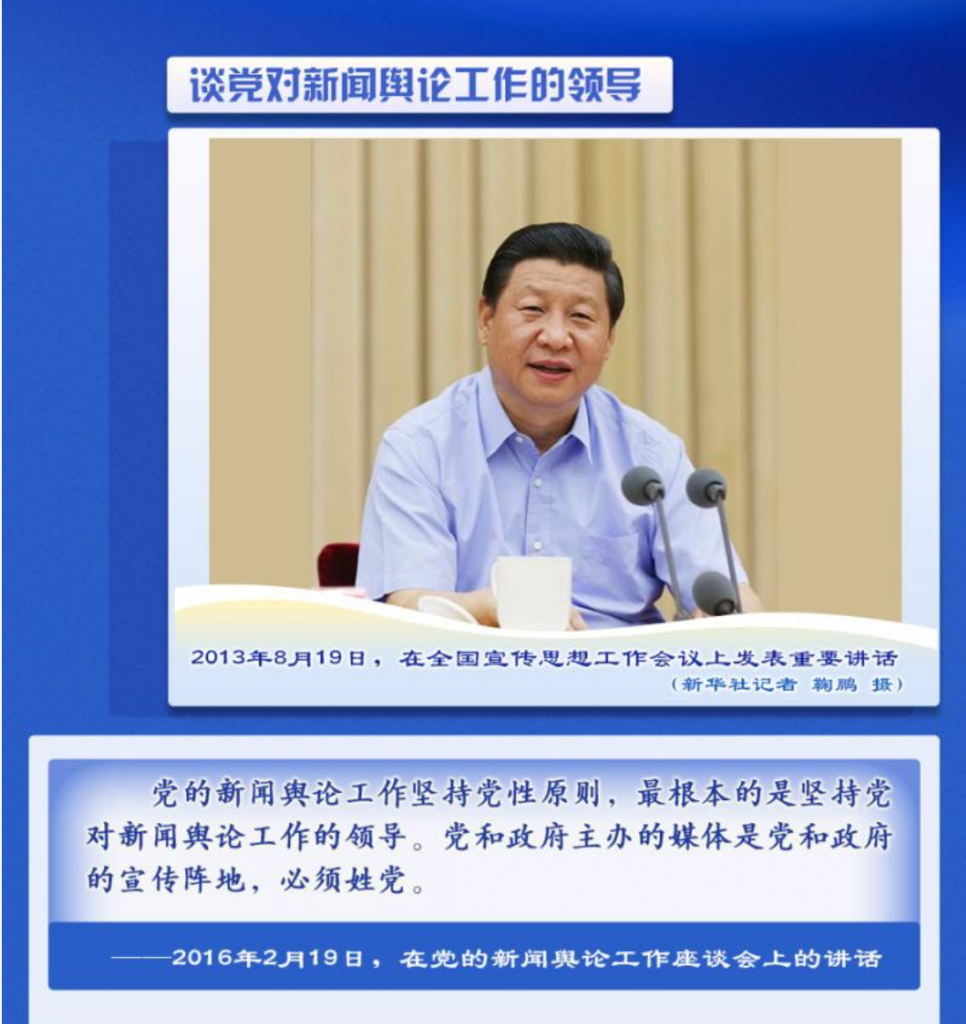
Talking About the Party’s Leadership of News and Public Opinion Work
“The Party’s news and public opinion wok adheres to the principle of Party spirit, and the most fundamental [aspect of this] is the Party’s leadership of news and public opinion work. The media operated by the Party and the government are the propaganda positions of the Party and the government, and the must be surnamed Party.”
- February 19, 2016, Speech to the Party Forum on News and Public Opinion Work
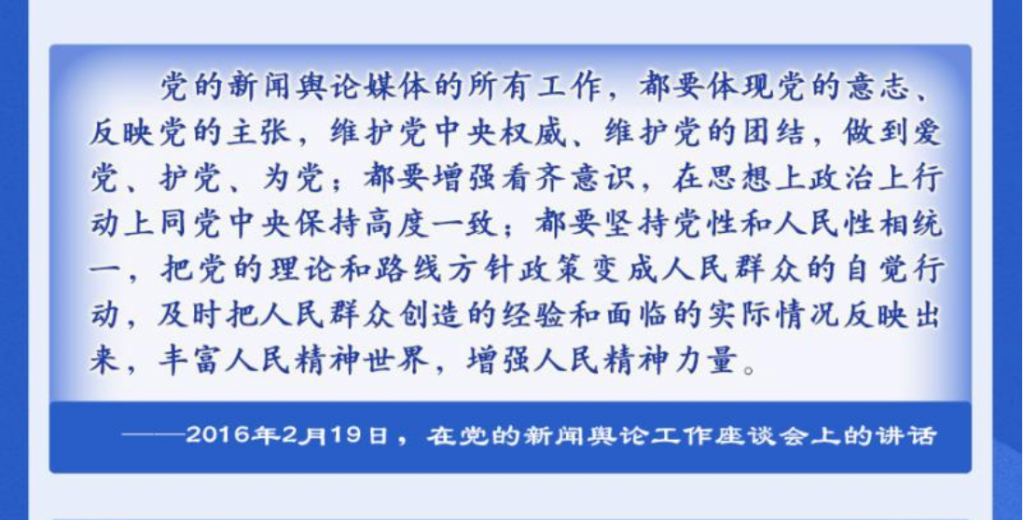
“All of the work of the Party’s news and public opinion media must embody the will of the Party, reflect the position of the Party, defend the authority of the CCP Central Committee, defend the unity of the Party, achieving love of the Party, protection of the Party and service of the Party; all must strengthen their consciousness of following the line (看齐意识), maintaining a high level of uniformity with the Party in terms of their ideas, their politics and their actions . . . . “
- February 19, 2016, Speech to the Party Forum on News and Public Opinion Work
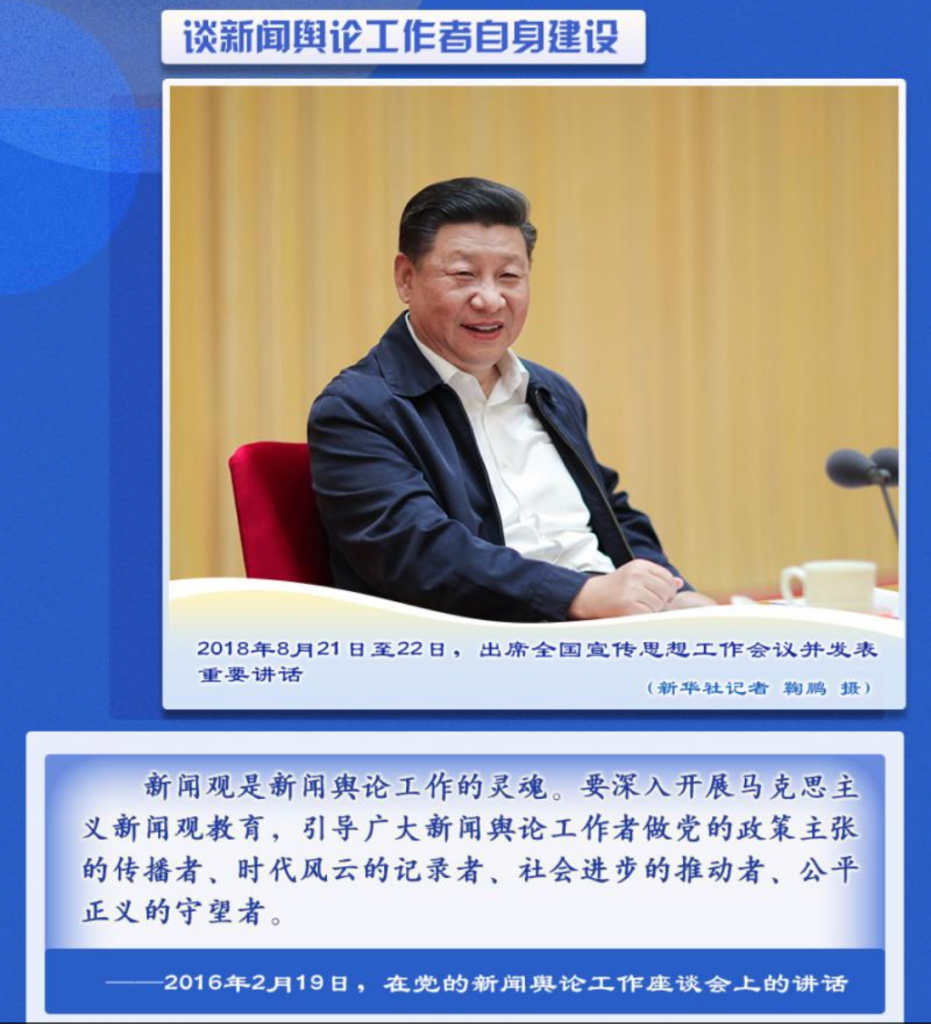
Talking About the Self-Building of News and Public Opinion Workers
“One’s view of journalism (新闻观)is the soul of news and public opinion work. [We] must deeply carry out education in the Marxist View of Journalism, leading the masses of news and public opinion workers in serving as the propagators of the Party’s policies and position, as chroniclers of the times, as promoters of social progress, as defenders of fairness and justice.”
- February 19, 2016, Speech to the Party Forum on News and Public Opinion Work
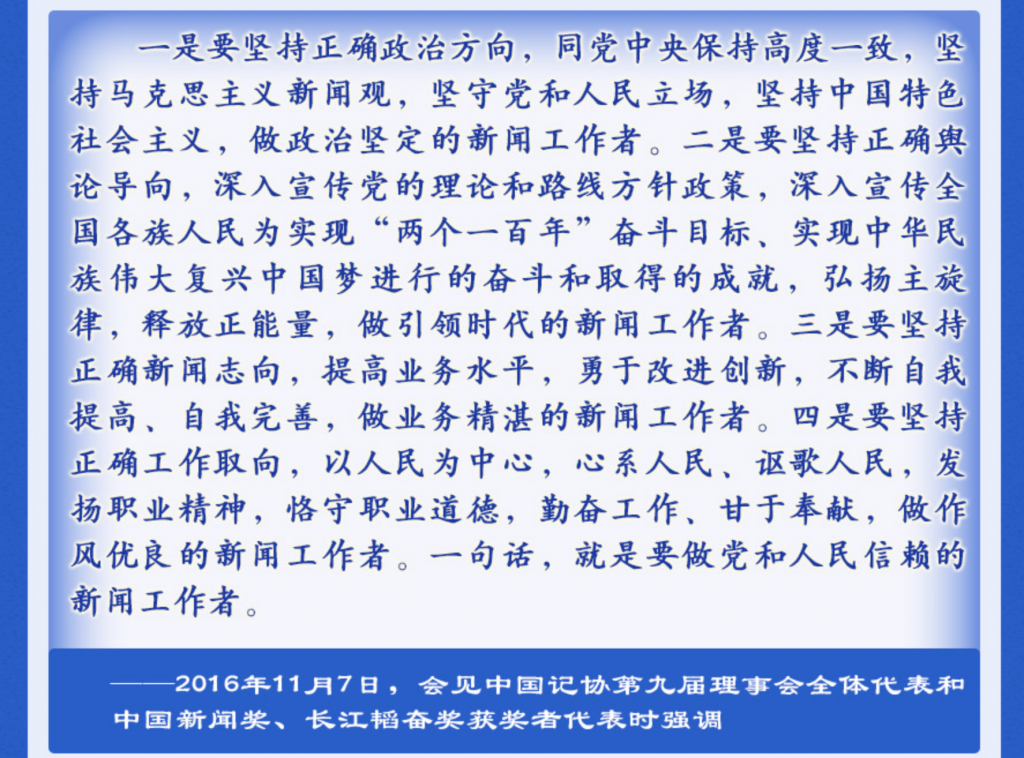
“First, [journalists] must adhere to the correct political direction, maintaining a high level of uniformity with the CCP Central Committee, adhering to the Marxist View of Journalism, steadfastly upholding the position of the Party and the people, adhering to socialism with Chinese characteristics, being news workers who are firm in their politics. Second, they must adhere to correct guidance of public opinion, deeply propagating the theories, path, guidelines and policies of the Party, deeply propagating the achievement of the ‘two centenary goals’ . . . . . In a sentence, they must be journalists that the Party and the people can trust.”
- February 19, 2016, Speech to the Party Forum on News and Public Opinion Work




















